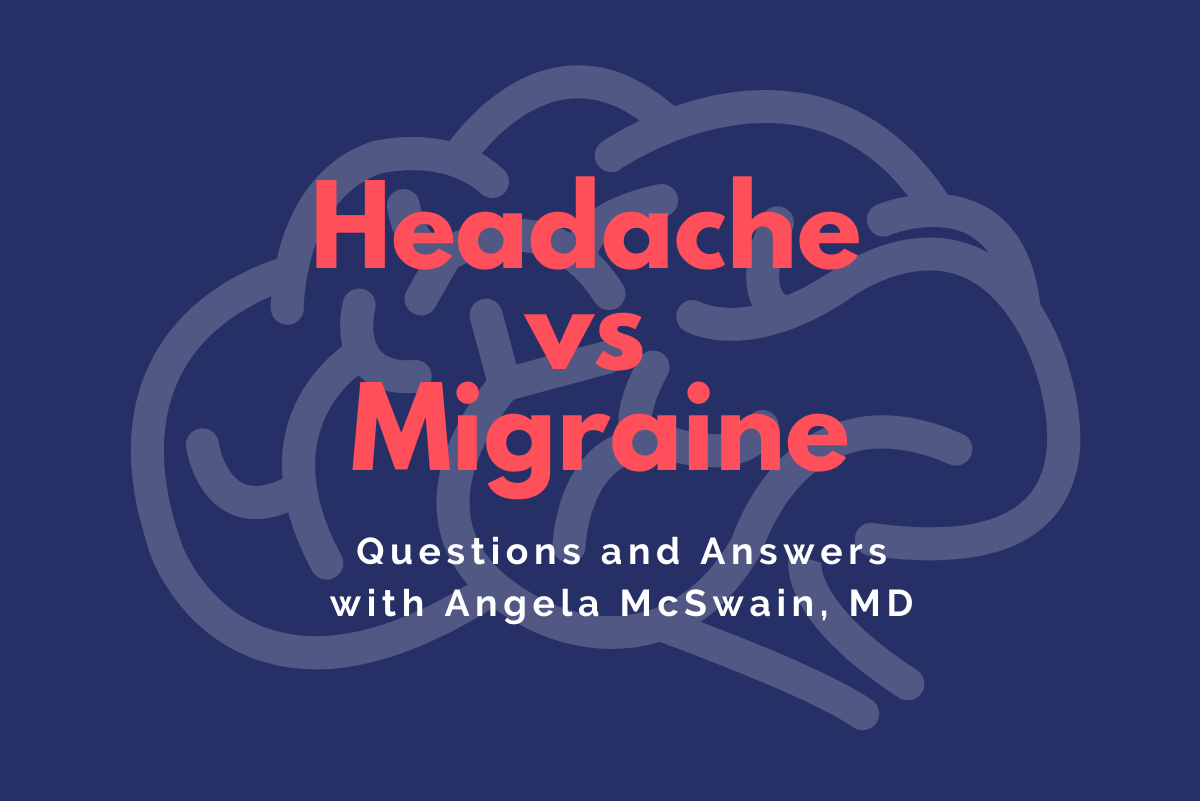Your doctor is here to help you feel better.
June is a great time for summer fun – but not for everyone. Migraines can strike any time of year and affect 1 in 4 people. While they generally cause no lasting damage, the pain and other symptoms can range from moderate to severe and can be debilitating. To observe Migraine Awareness Month this June, here are some Q & A’s that might be helpful to you and others you may know and love.
Question: What are the symptoms of migraine?
Answer: Common signs of a migraine include:
- Headache. Physical pain that may intensify gradually over one to several hours.
- Auras. Some patients develop an aura before or during a migraine, which can include a flash of light, bright spots, zigzag lines, or changes in vision or tingling in fingers/hands/lips or tongue.
- Nausea. Migraine headaches may also be associated with nausea and sometimes vomiting.
- Sensitivity to light and noise. Many people experiencing a migraine benefit from being in a cool, quiet and dark space.
Question: What can trigger a migraine?
Answer: Migraines can be triggered by many different things, including but not limited to stress, physical exertion, fatigue, lack of sleep, hunger, odors, chemicals, certain foods, and medications. Triggers vary from person to person.
Questions: What are different treatment options for migraines?
Answer:
- Pain relievers such as aspirin, ibuprofen or NSAIDS (non-steroidal anti-inflammatory drugs) can sometimes be appropriate to relieve symptoms of a migraine. Follow dosing instructions and talk to your doctor about what medications are best for you and how to use them safely.
- Oral prescription medications such as the Triptans group are FDA approved to disrupt the mechanism through which migraines develop rather than simply treating the pain.
- Lifestyle changes such as healthy eating, regular exercise, good sleep routines and avoiding triggers can, in some cases, decrease migraine frequency.
- Depending on the frequency and severity of migraines, some patients are eligible for medications that may prevent migraine headaches. These may include daily oral meds, monthly injections, or periodic Botox injections.
Note: This answer is not a substitute for medical advice. You should always talk to a medical provider before taking any medications.
Suggested Article: Headache vs Migraine

Many are familiar with the dull ache, sharp tinges and sensitivity that accompany a headache or migraine. They are ubiquitous and annoying, can tax our concentration and alter our mood almost instantaneously.
Question: When should I call my doctor?
Answer: Talk to your doctor if your migraines interfere with your daily activities, treatments stop working, or any other concerns arise about your migraines.
At any time, if you notice the following symptoms, seek medical attention immediately.
- Severe headache with stiff neck and fever
- Sudden-onset severe headache with no known cause
- An acute change in headache quality, severity, or frequency
- New symptoms that do not usually occur during your migraine headache
Question: Which doctors treat migraines?
Answer: Neurologists receive specialized education in helping patients who have migraine pain. However, primary care physicians such as those who practice internal medicine or family medicine, can help most migraine patients identify triggers and control symptoms. They can also refer patients to specialist care when doing so would likely be beneficial to the patient.
Question: I saw on the internet that eliminating a certain food can stop migraines. Is that true?
Answer: Maybe. If a particular food is a trigger for you, then eliminating it from your diet could reduce the number of migraines you have. The trouble is, medical advice from websites and social media is notoriously unreliable. There is a tremendous amount of mistaken, misleading, or outright false “information” on the web, especially about medical conditions that cause frequent or chronic pain.
Be sure you are looking at information from reliable sources. Beware of sites or posts that claim that a pill, treatment or special diet will “cure” your migraines, especially if they are trying to sell a product to you. The best source of trustworthy guidance is your personal physician, who knows you and is your long-term partner for maximum health.



